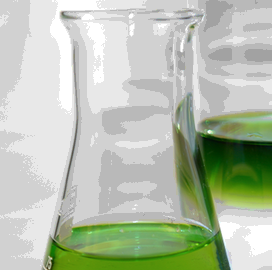Ceramic sponge drives new fuels
 Australian engineers have come up with a powerful, low-cost method for recycling used cooking oil and agricultural waste into biodiesel.
Australian engineers have come up with a powerful, low-cost method for recycling used cooking oil and agricultural waste into biodiesel.
The method harnesses a new type of ultra-efficient catalyst that can make low-carbon biodiesel and other valuable complex molecules out of diverse, impure raw materials.
Waste cooking oil currently has to go through an energy-intensive cleaning process to be used in biodiesel, because commercial production methods can only handle pure feedstocks with up to 2 per cent contaminants.
The new catalyst is so tough it can make biodiesel from low-grade ingredients, known as feedstock, containing up to 50 per cent contaminants.
It is so efficient it could double the productivity of manufacturing processes for transforming rubbish like food scraps, microplastics and old tyres into high-value chemical precursors used to make anything from medicines and fertilisers to biodegradable packaging.
The catalyst design is reported in a new study from an international collaboration led by RMIT University, published in Nature Catalysis.
To make the new ultra-efficient catalyst, the team fabricated a micron-sized ceramic sponge (100 times thinner than a human hair) that is highly porous and contains different specialised active components.
Molecules initially enter the sponge through large pores, where they undergo a first chemical reaction, and then pass into smaller pores where they undergo a second reaction.
It is the first time a multi-functional catalyst has been developed that can perform several chemical reactions in sequence within a single catalyst particle, and it could be revolutionary for the US$34 billion global catalyst market.
The new catalyst design mimics the way that enzymes in human cells coordinated complex chemical reactions.
“It’s like having a nanoscale production line for chemical reactions – all housed in one, tiny and super-efficient catalyst particle,” says RMIT’s Professor Karen Wilson.
The sponge-like catalysts are cheap to manufacture, using no precious metals.
Making low-carbon biodiesel from agricultural waste with these catalysts requires little more than a large container, some gentle heating and stirring.
While the new catalysts can be used immediately for biodiesel production, with further development the experts say they could be tailored to produce jet fuel from agricultural and forestry waste, old rubber tyres, and even algae.
The next steps for the RMIT School of Science research team are scaling up the catalyst fabrication from grams to kilograms.







 Print
Print